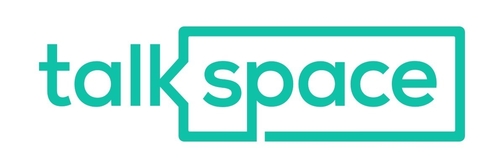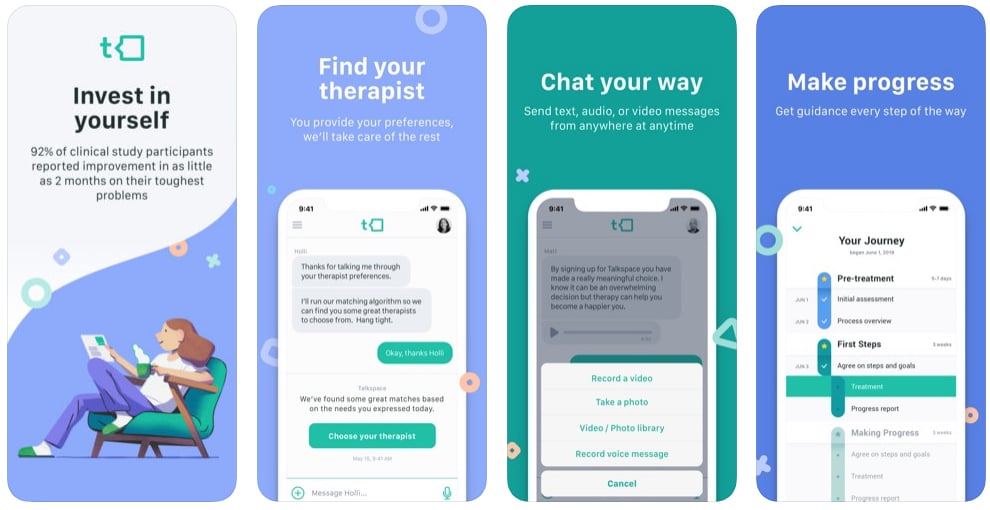Talkspace: Supporting Mental Health during COVID-19

As COVID-19 continues to spread throughout the globe and impacts the physical health of millions, the pandemic has also taken a toll on people's mental health. Without the ability to seek in-person help, many have turned to digital mental health services to meet these needs. In this context, Talkspace has emerged as a resource for many individuals and organizations to provide the emotional support desperately needed during this time, offering services such as counseling for anxiety, depression and couples counseling.
Background
As COVID-19 continues to spread throughout the globe and impacts the physical health of millions, the pandemic has also taken a toll on people’s mental health [1]. In addition to the stress caused by the virus itself there are stresses resulting from forced quarantine, including the economic stress of trying to make ends meet in a struggling economy, stress caused from a lack of social interaction and relationship stress resulting from time spent in close proximity. Without the ability to seek in-person help, many have turned to digital mental health services to meet these needs. Additionally, as companies and universities shift to online models, they have also looked to digital services to support the mental health of their students/employees. In this context, Talkspace has emerged as a resource for many individuals and organizations to provide the emotional support desperately needed during this time, offering services such as counseling for anxiety, depression and couples counseling.
The Company
Talkspace was founded in 2012 after co-founders Roni and Oren Frank were struggling through a rough patch in their relationship and engaged in couples counseling. This was a transformational experience for them, after which Roni transitioned from software development into psychology and uncovered a deeper societal issue – access to mental care and the stigma around these services [2]. According to Roni: “While one out of five Americans (50 million people) suffer from mental health issues, two-thirds of them are not receiving any care, Frank said. “Cost is the biggest barrier, the second barrier is stigma, and the third is access.” [3]
The Franks founded Talkspace to address these issues, offering a service where patients pay a price significantly below traditional therapy to engage in text discussions with licensed therapists accessible via a browser or mobile app. Since their founding Talkspace has grown significantly, expanding their services to include video-based therapy sessions and shifting towards the B2B space via partnerships with universities and businesses. Some of this product expansion was accelerated by COVID-19, as their new Digital Employee Assistance Program (EAP) was fast-tracked in an effort to provide employees access to digital wellness tools during the pandemic. This new program offers employees numerous resources including online counseling via messaging and live video sessions, as well as self-guided cognitive behavioral therapy (CBT) tools and other educational content.
Growth During COVID-19
In the current environment, it is no surprise that the number of users engaging on Talkspace and other similar platforms has been growing. In recent months Talkspace has reported an increase of approximately 25% in their volume of users since the middle of February, a trend that is continuing to accelerate. BetterHelp, one of their key competitors, has also reported a spike in the number of new members and has also stated that the number of new users who mentioned concerns about stress and anxiety during the past two months has more than doubled compared to the same period last year. [4]
In addition to the growing number of users, Talkspace has also seen a rise in interest among their institutional customers. While the process to onboard universities in the past has been notoriously slow they have recently been much more eager to engage, with the company receiving roughly five times more inquiries from colleges in March than it does in a typical month. According to Frank, this could be a signal of a longer-term trend towards providing improved access to mental health services, stating: “This has accelerated the awareness of digital health (services) by probably seven to 10 years… I believe we’re at the point of no return, where I think colleges and universities have to acknowledge that they need to provide these services to their students and faculty.” [5]
Finally, Talkspace has also reported increased interest from investors looking for growth options in quickly changing economy. This includes some investors who previously passed on the opportunity to be involved with Talkspace and now want to reengage. However, the company has so far been very cautious about raising new capital, instead choosing to focus on providing resources for those that are struggling during the pandemic and emphasizing the importance of alignment when it comes to bringing on new investors. [6]
Sustainability
While the immediate need of Talkspace’s services is apparent, the shift towards digital mental health services is one that has been going on for several years [7]. However, the long-term sustainability of this model is unclear and there are several key factors that Talkspace will need to consider as the market for digital health services evolves.
First, it remains to be seen if users will continue utilizing remote therapy services once some of the social distancing restrictions are lifted. While convenience and access are key value propositions for Talkspace, there may be trade-offs in terms of effectiveness when compared to traditional face-to-face sessions. In this respect, Talkspace may benefit from positioning themselves as a complement to existing services rather than a replacement, working with existing care providers to offer an integrated service that focuses on providing the best quality of care for users no matter where they are.
Second, Talkspace will also need to demonstrate to university and corporate clients that they will continue to provide value for students/employees in a post-pandemic world. In this context, the move to accelerate the Digital EAP was a positive one, showing that they can be agile and re-prioritize initiatives in order to address these new customers’ needs. Additionally, while the shift towards remote work and a focus on meeting employees’ emotional needs are positive indicators, the decision for many companies may come down to a cost-benefit analysis. In this respect, Talkspace should focus on understanding how their services are helping organizations in metrics they value (profitability, retention, etc.) in order to clearly convey to clients the value that their services provide.
Finally, since this is a growing sector Talkspace should be concerned about the risk of competition. Betterhelp was purchased by Teledoc in 2015, and Teledoc has seen dramatic increases in usage due to the effects of COVID-19 and forced isolation. During this surge in interest, and in what may be a winner-takes-most market, it may be in Talkspace’s interest to bring on as many new users and organizations as possible, increasing the learning that can be applied towards new product development and facilitating future sales through increased word-of-mouth. However, the financial and operational challenges posed by rapid growth can be significant, so they must ensure that they have the necessary talent and capital to support any future expansion.
Sources
[4] https://www.vox.com/recode/2020/3/20/21185351/mental-health-apps-coronavirus-pandemic-anxiety
[6] https://www.cnbc.com/2020/04/21/start-ups-surging-in-coronavirus-lockdown-decline-venture-money.html
[7] https://observer.com/2019/04/digital-cbt-rise-learn-to-live-big-health-mystrength/
[8] https://www.wsj.com/articles/teladocs-remote-doctor-visits-surge-in-coronavirus-crisis-11586894400



